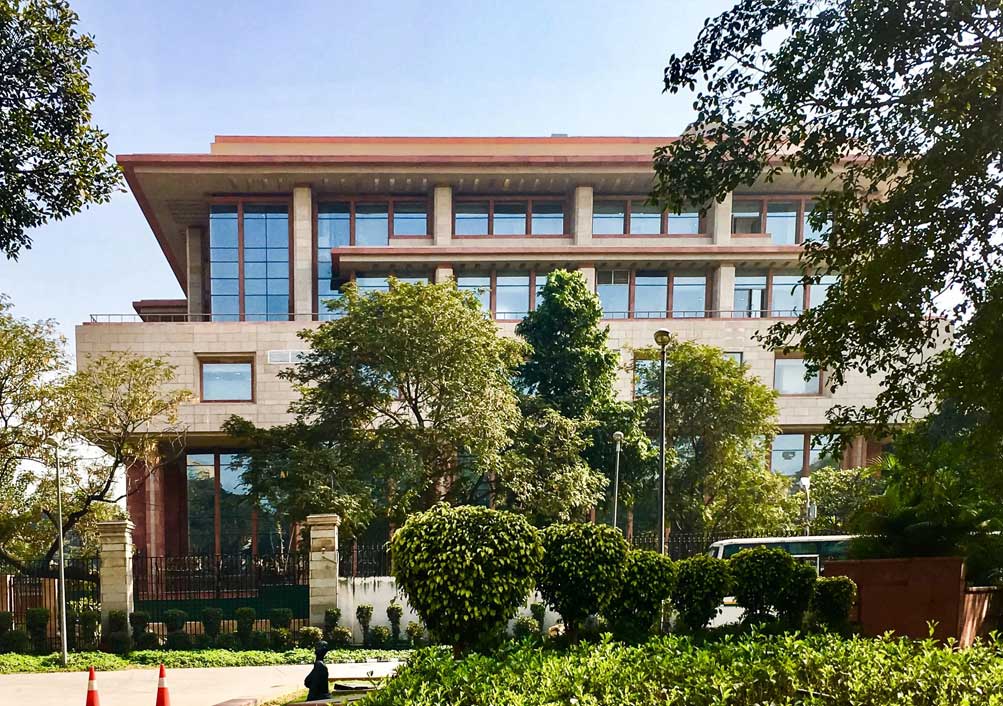Arbitral award vitiated by patent illegality appearing on face of same, calls for interference: SC

Read Judgment: State of Chhattisgarh vs. M/S Sal Udyog Pvt. Ltd.
Pankaj Bajpai
New Delhi, November 9, 2021: The Supreme Court has opined that failure on the part of Sole Arbitrator to decide in accordance with the terms of the contract governing the parties, would attract the “patent illegality ground”, as the said oversight amounts to gross contravention of Section 28(3) of the Arbitration and Conciliation Act, 1996, that enjoins the Arbitral Tribunal to take into account the terms of the contract while making an Award.
A Larger Bench of Chief Justice N.V. Ramana, Justice Hima Kohli and Justice Surya Kant therefore observed that Section 34(2A) of the 1996 Act empowers the Court to set aside an award if it finds that the same is vitiated by patent illegality appearing on the face of the same.
The observation came pursuant to appeal preferred by the State of Chhattisgarh (Appellant) challenging the judgment of Chhattisgarh High Court, whereby the order passed by District Judge, Raipur u/s 34 of the 1996 Act was partially modified and interest awarded in favour of Sal Udyog Pvt. Ltd (Respondent-company) from the date of the notice i.e. December 6, 2009 till realization, had been reduced from 18 per cent per annum to 9 per cent per annum.
After considering the dispute, the Top Court found that though the appellant-State did raise an objection before the Arbitral Tribunal on the claim of the respondent-Company seeking deduction of supervision charges, for which it relied on Clause 6(b) of the Agreement and the Circular dated July 27, 1987 issued by the State Government to assert that recovery of supervision charges along with expenses was a part and parcel of the contract executed with the respondent- Company, the said objection was turned down by the Sole Arbitrator by giving a complete go by to the terms and conditions of the Agreement governing the parties and observing that there is no basis to admit any such “indirect expenses”.
The Circular dated July 27, 1987 issued by the Government of Madhya Pradesh that provides for imposition of 10% supervision charges on the amounts calculated towards the cost of the Sal seeds in the expenditure incurred, was also ignored, added the Court.
“Pertinently, the respondent-Company has not denied the fact that supervision charges were being levied by the appellant-State and being paid by it without any demur as a part of the advance payment made on an annual basis, right from the date the parties had entered into the first agreement, i.e., from 30th August, 1979. This fact is also borne out from the specimen copies of the orders filed by the appellant-State with the appeal that amply demonstrate that the cost of the Sal seeds required to be paid by the respondent-company included ‘supervision charges’ described as ”Paryavekshan vyay” in vernacular language. It was only after the appellant-State had terminated the second contract on 21st December, 1998, that the respondent-company raised a dispute and for the first time, claimed refund of the excess amount purportedly paid by it to the appellant-State towards supervision charges incurred for supply of Sal seeds”, observed the Larger Bench.
The Apex Court, therefore, noted that patent illegality is manifest on the face of the Arbitral Award inasmuch as the express terms and conditions of the Agreement governing the parties as also the Circular dated July 27, 1987 issued by the Government of Madhya Pradesh have been completely ignored.
Accordingly, the Larger Bench partly allowed the appeal observing that ‘patent illegality’ is not only apparent on the face of the Award, it goes to the very root of the matter and deserves interference.
Therefore, the Bench quashed the arbitral award insofar as it permitted deduction of ‘supervision charges’ recovered from the respondent-Company by the appellant-State as a part of the expenditure incurred by it while calculating the price of the Sal seeds, being in direct conflict with the terms of the contract governing the parties and the relevant Circular.
Sign up for our weekly newsletter to stay up to date on our product, events featured blog, special offer and all of the exciting things that take place here at Legitquest.




Add a Comment